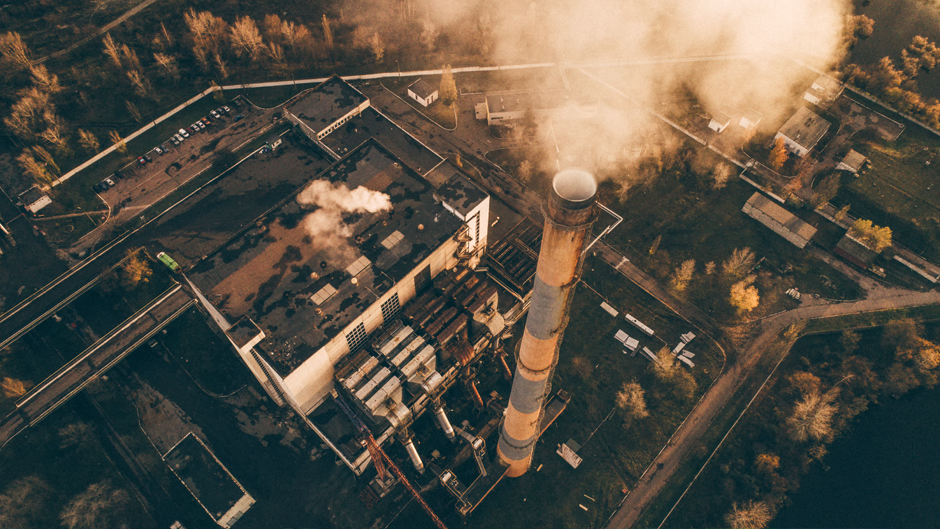To understand what a zero-waste future might look like, ask any one of the 10 students who recently wrapped up a course focused on the topic.
By partnering with the environmental organization Florida Rising, the small environmental policy class worked on a research brief about ways that Miami-Dade County could utilize more waste reduction strategies, instead of relying on an incinerator to eliminate most of its garbage. Offered through the Leonard and Jayne Abess Center for Ecosystem Science and Policy, the course was designed after the county’s largest trash burning facility in Doral caught fire last February, and the blaze took days to put out.
In the wake of that fire, residents of Doral, along with members of Florida Rising and other environmental organizations, are urging local leaders not to rebuild an incinerator in the state’s most populous region. And the students’ work this semester—led by lecturer and practicing environmental lawyer, Theresa Pinto—may help the organizations strengthen their argument.
Instead, the students encourage Miami-Dade County to move toward policies that focus on reducing trash and single-use plastics, as well as increasing recycling and composting, rather than burning its waste. Through their research, along with a site visit to the incinerator’s perimeter, the students believe that rebuilding an incinerator will lead to more harmful air pollution and carbon emissions in South Florida.
“Reports from the World Health Organization and the U.S. Centers for Disease Control present compelling information about the human impacts of incinerators to generate pollutants, and respiratory diseases like asthma, acute lung injury, and cancer can be associated from exposure to these toxins,” said Rachel Petrovich, a junior studying ecosystem science and policy.
While incinerators are touted for eliminating garbage quickly, students also pointed out their drawbacks, including potential harm to human health and the surrounding environment from air pollution produced by the facilities. In addition, the ability of incinerators to help generate renewable energy does not actually offset the amount of pollution they emit, said Leanna Navo, a sophomore studying ecosystem science and policy.
“The amount of energy that incinerators are creating is no longer profitable,” she added.
Students investigated the legal complications to build and maintain an incinerator. They learned that Miami-Dade County is home to 13 trash and recycling centers, two home collection centers, and two landfills, which are now overburdened with the loss of the Doral facility. According to Pinto, Florida now leads the nation in the number of incinerators located across the state, and students stressed the need for monitoring emissions from these facilities.
The students also found some successful zero-waste programs in the United States, which aim to divert garbage from landfills. San Francisco adopted a zero-waste policy in 2002, which now includes a mandatory recycling and composting program. The compost generated helps vineyards and farms nearby to grow crops. The city also rewards businesses that reduce waste with incentives. San Diego has also implemented a gradual zero-waste plan and have managed to divert more than 70 percent of their waste since 2013. Los Angeles has also been very successful.
But students stressed that to be successful, all these cities needed to plan ahead and implement changes gradually. Currently, students learned that just 10 of the 34 municipalities across Miami-Dade County offer door-to-door waste collection, which they said was inequitable. Also, they suggested the county begin a composting initiative and expand its Plastic Free 305 initiative.
“There must be a clear timeline to move Miami-Dade County toward renewable waste,” said Matt Ellis-Ramirez, a senior studying public health science and math.
Pinto said she has worked with Florida Rising in the past, and she created the course during an Engaged Faculty Fellowship at the University’s Office of Civic and Community Engagement, after seeing that the organization was working on a court case related to the Doral incinerator. Through the course, students also met with MacKenzie Marcelin, climate justice director at Florida Rising, and Nestor Perez, an environmental lawyer who worked with Earthjustice, who is also a Doral resident.
“This was my chance to bring a real live case into the classroom, and to expose my students to civic engagement in the context of environmental and civil law,” Pinto said. “We hope that Florida Rising will use this report to bring it to the attention of policymakers and lawmakers, and hopefully, the students’ work will impact the broader community.”
Pinto hopes to offer a similar course each spring focused on different local environmental issues.
Students said they enjoyed the chance to learn more about zero-waste policies and how they could be applied locally. Shaela Sturgeon, a sophomore studying ecosystem science and policy, said her experience piqued her interest in law school.
“I wasn’t interested in the workload before, but this class made me feel like I could make a real difference,” she said. “I really enjoy public advocacy through an environmental lens, and I want to empower communities to speak out about political decisions being made on their behalf.”
Alexa Smith, a sophomore majoring in environmental science and policy and advertising management, said that often environmental policy classes have left her feeling depressed about the challenge of changing climate policy, but this class left her hopeful.
“This offered a more optimistic outlook because we were productive in working to make a change,” she said. “Often we talk about the barriers to making change, so it’s nice to give solutions and tools for Miami-Dade County to do something different in the future.”
To learn about future elective courses like this one, search under ECS 372 classes offered by the Abess Center.

